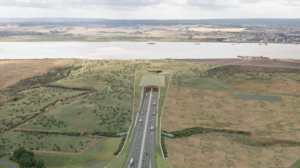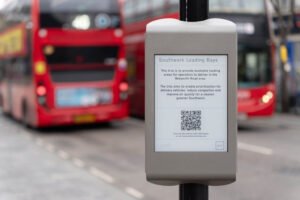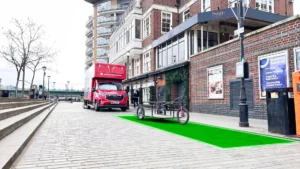New research suggests how the impact of freight, servicing and delivery vehicles on the city’s road networks can be improved by a kerbside management scheme.
The report called LOADS EASIER: Unlocking the power of the kerb, produced for Stantec and Grid Smarter Cities builds upon research reports by the Centre for London which outline how dynamic kerbside management is a viable solution to meet the growing demands and challenges in London’s freight delivery access. The London First report also looks at the growing challenge of freight access in London and the need for radical change.
Grid Smarter Cities says growing consumer demand and the rising trend in quick, hassle-free delivery culture has a substantial impact on congestion, air quality with direct effects on communities. By 2030, the demand for parcels will have more than doubled in London. Limited city kerbside access and navigating narrow streets put a toll on freight operators and delivery drivers who spend time and mileage idling and circling for suitable delivery points.
Freight, servicing and delivery vehicles in London:
- Make up 23% of all road transport CO2 emissions, 33% of NOx, and 29% of all PM2.5
- Make 400,000 freight trips in the city a day – with a 54% increase in van kilometres in the past 25 years
- Drivers spend an average of 149 hours stuck in traffic a year
‘Kerb’ is a kerbside management platform with sector specific tailored solutions to help flexibly and dynamically manage the kerbside. One aspect enables freight drivers to book slots for access, deliver goods and services to the right place at the right time, supporting delivery certainty and reducing Penalty Charge Notice penalties. Drivers can also book in advance, so that more deliveries can be offloaded within the same time frame. A bookable kerbside means cities have more flexibility in how scarce kerb space availability can be used better, reducing circling delivery vehicles and congestion and helping to improve air quality and reduce emissions. A dynamic kerb space could be a loading bay in the morning, cargo bike delivery bay in the afternoon, street eatery or parklet in the evening and taxi rank by night.
Multiple groups of society will benefit from a platform including London boroughs, freight operators, the environment, and local communities with better urban realm for visitors and residents. The solution has been designed with delivery drivers at the core of the user experience.
David Bowers, Director of Transport, Stantec, said: “Our analysis shows that better management of the kerbside could bring a wide range of economic and financial benefits to delivery operators and road users by reducing the need for vehicles to circulate whilst looking for a safe space to make a delivery – which in turn helps reduce causes of congestion and emissions and makes delivery operations more efficient.”
Neil Herron, Founder and CEO, Grid Smarter Cities, said: “We have a unique opportunity to showcase London to the world with the implementation of a dynamic, bookable kerbside management solution that reduces congestion, improves air quality and enables businesses and communities to receive goods and services more efficiently. “This report creates a methodology and quantifiable value of those benefits and a process that can be replicated and scaled for other cities. The analysis validates the value that dynamic kerbside management can bring to cities and its citizens, to operators and to the environment – offering a ‘win-win’ for all. Let’s now begin the process of turning these proof points into action.’’
The companies are hosting a webinar about the findings on Wednesday 8 December at 10.30 am. Sign up here.
(Picture – Grid Smarter Cities)

























